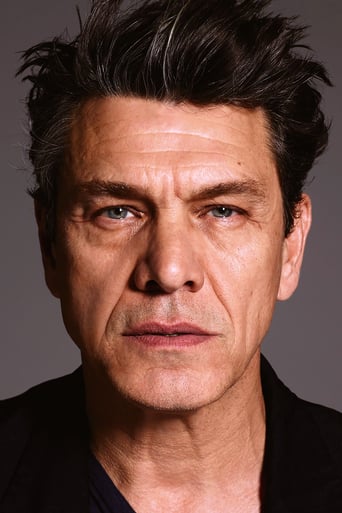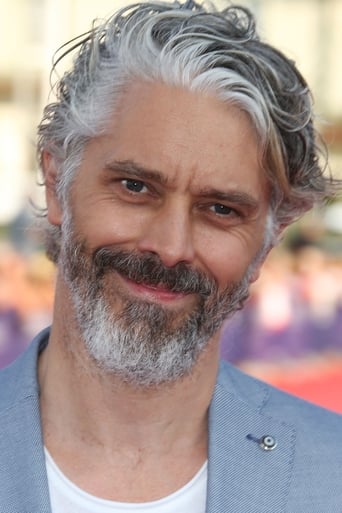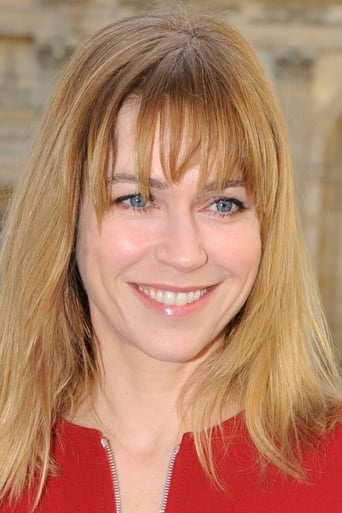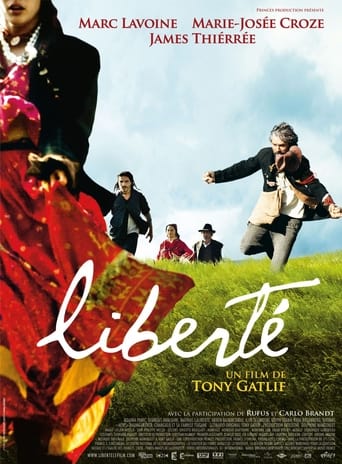
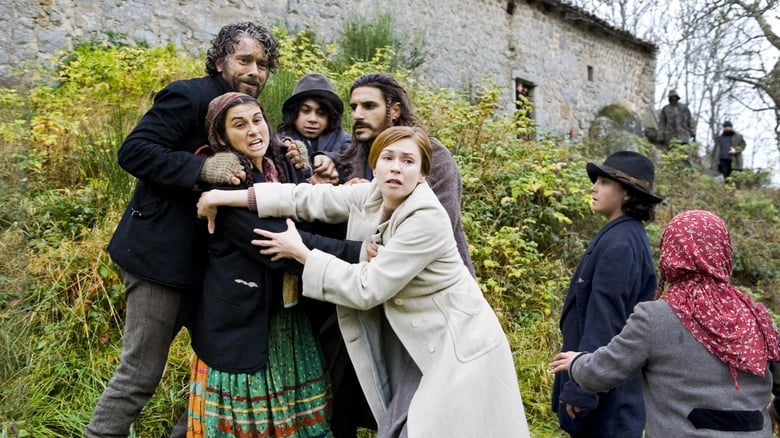
Freedom (2009)
A Gypsy family travels the French roads during the Second World War, followed by Little Claude, a young boy seeking a new family after his parents "left and never returned". Upon reaching a town where they traditionally stop for a few months and work in vineyards, they learn that a new law forbids them from being nomadic. Theodore, the town's mayor, and Miss Lundi, the schoolteacher, protect and help the Gypsies. Despite this, They are arrested and placed in an internment camp. Theodore manages to rescue them and gives them a piece of property where they must settle. But the Gypsies' deeply ingrained thirst for freedom makes this sedentary lifestyle difficult to bear. After Theodore and Miss Lundi are arrested for resistance, the Gypsies decide they must get back on the move in order to remain free.
Watch Trailer
Cast
Reviews
Overrated and overhyped
Yo, there's no way for me to review this film without saying, take your *insert ethnicity + "ass" here* to see this film,like now. You have to see it in order to know what you're really messing with.
It is neither dumb nor smart enough to be fun, and spends way too much time with its boring human characters.
I think this is a new genre that they're all sort of working their way through it and haven't got all the kinks worked out yet but it's a genre that works for me.
Very few films have dealt with the persecution and annihilation of the gypsies or gitanos during World War Two by Hitler and his minions. For that reason alone, this film is important. If you are looking for other films, you might check out "The Man Who Cried" with Johnny Depp.This film was a nice surprise. I expected it to be depressing, but it was not. What Gatlif managed to portray through some very nice cinematography and story development is the gypsy love of nature and the outdoors. It was beautifully done.Another theme that comes across well in this film is the gypsy love of music. They seem to have an unusual flair for music, and they use it to enrich their own lives, but also to provide an income and support themselves.As someone with a history degree, I appreciated the fact that Gatlif attempted to shed some light on a subject that few have touched. I also appreciated the cultural insights on gypsies and their lifestyle. Anyone looking for something a little different should enjoy this film.
To me, this is one of those rare movies which open a door to another world - in this case, the bleak world of France during the Second World War. The movie is in French, but as an English speaking person, there was ample time for me to digest the subtitles and the action taking place on screen. I found the characters to be well rounded and real, with only a few minor hiccups. The acting is superb and very believable. Surprisingly, for a movie with such a supposedly sad theme, there were a few times when I found myself having a good old belly laugh, even though this movie is not a comedy. The humor comes from the ridiculous, but so real situations and/or some of the characters idiosyncrasies. Probably a bit like watching someone consciously avoid slipping on a banana peel, only to be run over by a Mac truck. In my humble opinion, this is a very well made and highly entertaining film.
Tony Gatlif had already broached the subject of the gypsies in his earlier "Les Princes" (1983) or "Gadjo Dilo" (1998);sadly he never enjoyed commercial success in his native France,in spite of generally favorable reviews by critics .Himself a gypsy,he had to make a movie about his people during WW2 for it was also a genocide ,comparable to that of the Jews ;we learn that up to 25% of them were exterminated in concentration camps.Based on historical facts : the roundups by the French gendarmes in the occupied part of France and the story of a young resistant fighter who takes refuge in a small village where she has become a schoolteacher:what a humiliation it must be for her to have her pupils sing the notorious "Maréchal Nous Voila" (the children shout more than they sing ,perhaps on their mistress's advice)!It's no coincidence if this anthem is followed by the tune of "Le Temps Des Cerises" the revolutionary song of La Commune De Paris (1871).Ther's a sword of Damocles hanging over the band of gypsies who are camping in the small village .Not only the German soldiers ,but also the French police ;and anyway the French agree ,cause "they want to help the country get rid of that vermin" ;the gypsies in France have always been outcasts ,they were before WW2 and they still are in 2011.There are two just people in the village :the school teacher who welcomes the children in her school and the mayor who gives them a house so that they will not be arrested ;a "law" forbids nomadism in the country and the notable tries to circumvent it.It's a pity that the part of the mayor (singer Marc Lavoine ,an occasional actor ,notably in Chabrol's "L'Enfer" )and of the young teacher should be underwritten. All that concerns the gypsy rings true and of course they use their own language (there's an alternative gypsy title ,used abroad).And they make wonderful music.
I've seen half a dozen or so of Tony Gatlif's films and I've enjoyed them all - in fact his previous film, Transylvania, was my equal favourite cinema release of 2008. While Gatlif's work documents the way of the Roma (gypsies), the themes are universal: celebrations of music, culture, ethnicity and so on. It's the dramatic and visual way in which Gatlif portrays these elements that has much impact for me.Korkoro certainly doesn't disappoint. The visuals are beautifully rendered, and the frame is used wonderfully - sometimes with extreme close-ups, sometimes panoramic. Like Robert Guédiguian's latest film, The Army of Crime, the film is set during World War II. According to the end credits, an estimated 250,000 to 500,000 of Europe's 2 million pre-war gypsies died at the hands of the Nazis. This story follows a wandering family of 15 of those.The Germans in occupied France decreed a law forbidding the movement of itinerants and this family find themselves stranded in a town where they seasonally perform farm work, before they are imprisoned in a camp. The family has the sympathy of the town's mayor - who provides land for the family - and the local teacher, Mademoiselle Lundi (Marie-Josée Croze), who is based on the real-life resistance fighter Yvette Lundy.I love this film. Not only does it have all the trademark Gatlif traits: wild depictions of gypsy life, wild music and spurts of insanity, but its presentation of the rarely depicted and tragic part that the Roma played in WWII combine to make this a lovely story.Some of the visuals are amazing, like a sick horse and its gypsy treatment (it'll have you wondering how the hell they got animals to 'act'). The cinematography is superb. The acting is strong and Croze's role is especially beautifully understated. Well worth seeing.
